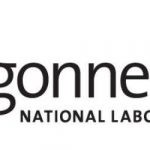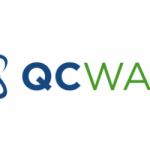Quantum computing and risk to data security for enterprises

(TechRadar) Alan Duric, co-founder and CTO of Telio Holding ASA that is now listed on the Oslo stock exchange, and Camino Networks explains quantum computing’s future risk to data security for enterprises in his recent article. IQT-News summarizes.
Duric explains “while the concept of ubiquitous quantum computing is still at least 10 -15 years away–even by the most optimistic of industry experts–it pose a threat to the security of data in current systems. Enterprises be concerned about implementing post quantum resistance security technology today?
Through enabling laser-quick calculations and combinatoric data processing, quantum computing promises to boost progress and innovation across industries. But it does however have a rather troubling downside; it holds the power to ‘crack’ current data security encryption codes within seconds.
Cryptography is at the heart of our global internet economy from online banking to guarding intellectual property as well as secure and private communications between individuals and organizations. As the fundamental security setting for government and enterprise communications, it plays an important role in national security. Ultimately, unless measures are taken to secure current data security processes, quantum computing stands to effectively unveil a wealth of super-confidential data, including enterprises’ intellectual property by making this data accessible when the technology comes into force.
We are therefore a long way from a cryptographic Armageddon but both governments and enterprises need to be aware of the threat that quantum poses to data secured by current security technology and take steps today to secure their sensitive data so it stays safe for decades to come.
Enterprises also need to act to protect their confidential data from being stolen. Only last month, a report by Tech consultancy, Booz Allen Hamilton, Chinese Threats in the Quantum Era, warned of the threat from Chinese groups in stealing high-value data, in order to decrypt it once quantum computers are able to break classical encryption. The report suggested that by the end of the 2020s, Chinese threat groups will likely collect data that enables quantum simulators to discover new economically valuable materials, pharmaceuticals, and chemicals.
Enterprises therefore need to put technology in place that secures their data against both the threats of today and those of tomorrow. By moving to quantum-safe technology they can be assured that their data is protected for whenever quantum comes into force, but where do they start?
Many technology companies have been working on quantum-safe solutions for a number of years and are developing a number of diverse solutions; these include quantum key cryptography (QKC) or post-quantum algorithms (PQA), where the principles of quantum mechanics are used to encrypt data and transmit it in a way that cannot be hacked. In reality many of these providers will update their security levels in order to stay well ahead of the threat from quantum computing, thus removing the onus of upgrading to quantum-safe solutions from their customers.
The advent of quantum computing looks set to bring about exciting innovations across industry sectors but enterprises today need to consider protecting their confidential data for when the technology matures. They need to implement policies that ensure their staff are using only ‘enterprise-grade’ platforms and partner with the technology experts who can provide the platforms to protect their data and offer peace of mind that the advances in technology do not lead to disclosing confidential enterprise data.
<https://www.techradar.com/features/quantum-computing-and-risk-to-data-security-for-enterprises>
Sandra K. Helsel, Ph.D. has been researching and reporting on frontier technologies since 1990. She has her Ph.D. from the University of Arizona.



















